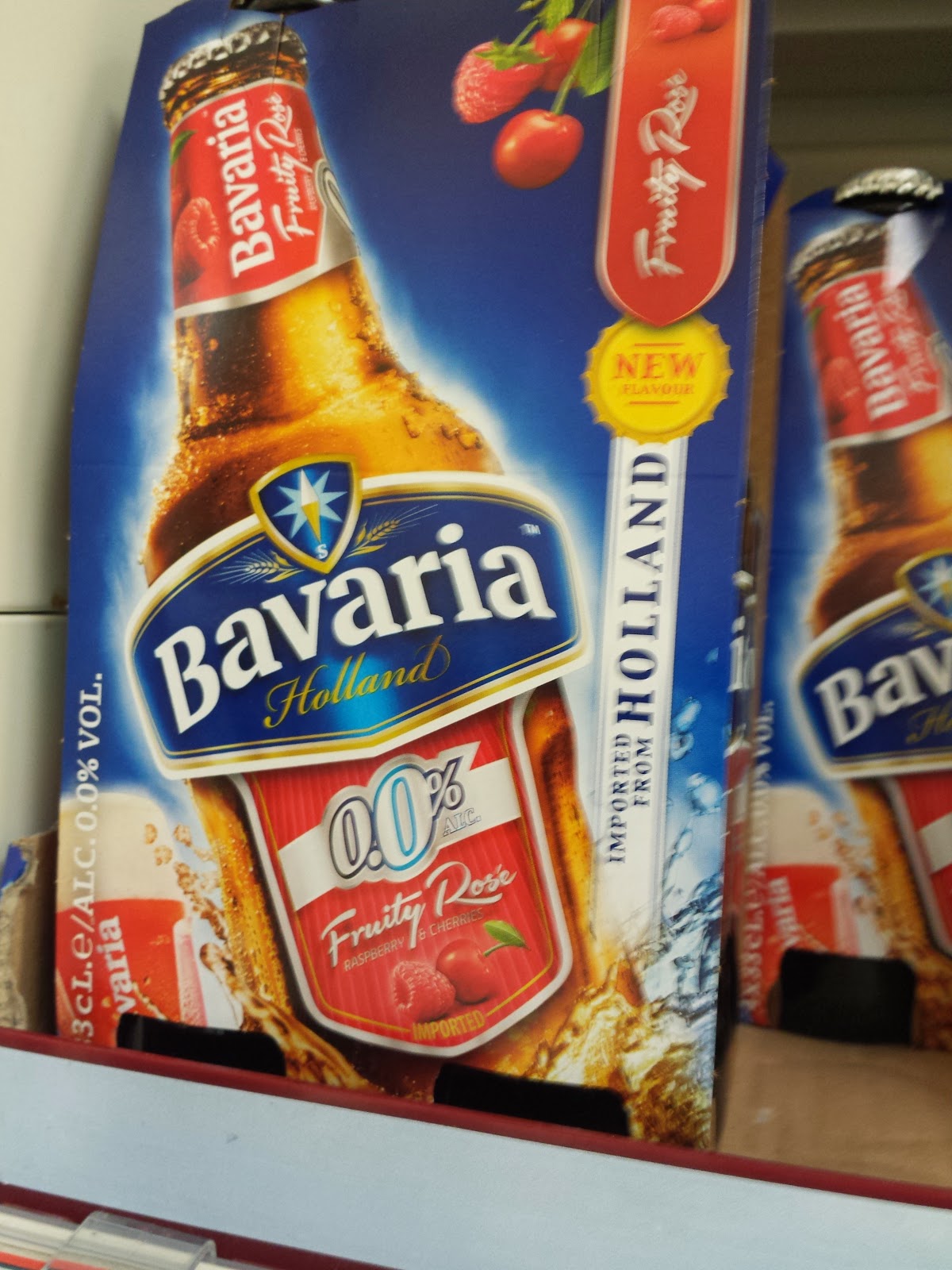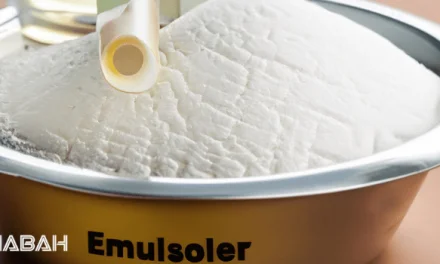Is Beers Halal
When it comes to the question of whether or not beer is halal, there seems to be some confusion. With various types of beer available, including non-alcoholic options, it’s important to understand the Islamic rulings on their permissibility. In this blog post, we will explore the facts and provide clarity on this topic for our readers. So, if you’ve ever wondered if beer can be considered halal, keep reading to find out the answer.

What does halal mean in the context of beverages?
In the context of beverages, halal refers to whether the drink is permissible according to Islamic dietary laws. For a beverage to be considered halal, it must meet certain criteria. First and foremost, it must not contain any ingredients that are prohibited in Islam, such as alcohol or any intoxicating substances. Additionally, the beverage should be produced and processed in accordance with halal standards, ensuring that it has not come into contact with any haram (forbidden) substances or practices. The halal certification process helps consumers identify which beverages are compliant with these requirements, giving them the confidence to consume them.
Understanding the halal certification process for beers
Understanding the halal certification process for beers is crucial for consumers who wish to ensure that the beverages they consume align with their religious beliefs. The halal certification process for beers involves several steps to verify that the production and ingredients used comply with Islamic dietary guidelines:
-
Ingredient Analysis: Each ingredient used in the beer production process is carefully examined to determine if it is halal. This includes analyzing the source and processing methods of ingredients such as barley, hops, yeast, and flavorings.
-
Manufacturing Process: The production process is evaluated to ensure that it does not involve any haram (prohibited) practices, such as the use of non-halal additives or the presence of cross-contamination with haram substances.
-
Alcohol Content: The alcohol content of the beer is meticulously measured to determine if it falls within the permissible limits set by Islamic dietary laws. The permissible alcohol level varies among different certifying bodies and countries.
-
Certification Bodies: Halal certification for beers is typically conducted by reputable halal certification bodies recognized by Islamic authorities. These organizations assess the compliance of beer manufacturers with halal standards and issue halal certificates if the requirements are met.
It is important for consumers to look for halal certification labels on beer products to ensure that they meet the necessary standards. By understanding the halal certification process, consumers can make informed choices and enjoy their beverages while adhering to their religious beliefs.

Non-Alcoholic Halal Beers
When it comes to exploring the market for non-alcoholic halal beers, there is a growing demand for these beverages among Muslim consumers who are looking for halal alternatives to traditional alcoholic beers. Non-alcoholic halal beers provide a refreshing and enjoyable option for those who want to adhere to Islamic dietary guidelines while still being able to enjoy the taste and social aspects of beer.
Several popular brands have recognized this demand and have started offering non-alcoholic halal beer options. These brands understand the importance of catering to the specific needs of Muslim consumers and have developed products that are compliant with halal requirements. Some of the well-known brands in this market include:
-
Erdinger Alkoholfrei: Known for its premium quality and wide range of non-alcoholic beers, Erdinger Alkoholfrei offers a halal-certified option that delivers the same great taste as its alcoholic counterparts.
-
Mikkeller Drink’in The Sun: This Danish brewery offers a range of non-alcoholic beers, including a halal-certified option called Drink’in The Sun. It is a light and fruity beer that is perfect for those looking for a refreshing and halal beverage.
-
BrewDog Nanny State: BrewDog, a renowned craft beer company, has introduced Nanny State, a low-alcohol beer that is halal-certified. It offers a flavorful experience with a hoppy aroma while adhering to halal requirements.
-
MaltCo: MaltCo is a Canadian-based company that specializes in producing non-alcoholic malt beverages. Their products are halal-certified and provide a range of options for those looking for a halal beer alternative.
It’s important to note that the permissible alcohol levels in halal beers must meet specific criteria. The alcohol content should not exceed 0.5% by volume, as anything beyond this would be considered haram (forbidden). Halal certification bodies carefully assess and monitor the manufacturing process to ensure compliance with these guidelines.
When purchasing non-alcoholic halal beers, it is advisable to look for key ingredients that are halal-certified. This may include malt extracts, hops, yeast, and water. It’s also important to be aware of common ingredients that may render beers non-halal, such as animal-derived additives, flavorings containing alcohol, or ingredients containing haram substances.
By exploring the market for non-alcoholic halal beers and understanding the key considerations and requirements, Muslim consumers can enjoy a wider range of beverage options that align with their religious beliefs and dietary restrictions. Through the availability of halal-certified options, individuals can savor the taste and experience of beer in a way that is compliant with their faith.

Factors affecting the alcohol content in halal beers
There are several factors that can affect the alcohol content in halal beers. These factors include:
-
Fermentation process: The duration and temperature at which the fermentation process takes place can directly impact the alcohol content in beers. Longer fermentation and higher temperatures can result in higher alcohol levels.
-
Ingredients used: The type and quantity of ingredients used in brewing beers can also affect the alcohol content. For example, using more fermentable sugars or adding additional fermentable ingredients can increase the alcohol content.
-
Yeast strain: Different strains of yeast have varying fermentation capabilities and alcohol tolerance. Choosing a yeast strain with lower alcohol tolerance can help control the alcohol content in halal beers.
-
Filtering and dilution techniques: Post-fermentation processes such as filtering and dilution can be used to adjust the alcohol levels in beers. These techniques can help lower the alcohol content to meet halal standards.
-
Quality control: Implementing strict quality control measures during the brewing process is essential to ensure consistency in alcohol levels. Regular testing and monitoring can help maintain the desired alcohol content in halal beers.
It is important for breweries to carefully manage these factors to ensure that the alcohol content in their beers complies with halal standards. By understanding and controlling these factors, breweries can produce non-alcoholic halal beers that meet the needs and preferences of Muslim consumers.
:max_bytes(150000):strip_icc()/LIQUORS-10-best-nonalcoholic-beers-5078321-d4c79d1bcd6c45b2b266f48bc8ac8b1a.jpg)
Can alcoholic beers be considered halal?
The question of whether alcoholic beers can be considered halal is a complex and nuanced one. In Islamic law, the consumption of alcohol is generally considered haram, or forbidden. However, there is ongoing debate among scholars about the permissibility of consuming alcoholic beverages in certain situations. Some argue that the prohibition on alcohol is absolute, while others believe that small amounts of alcohol may be tolerated in specific circumstances.
It is important to note that the determination of whether a beer is halal or not depends on the specific criteria outlined by a certifying authority. Generally, the permissible alcohol content in halal beers is very low, often limited to less than 0.5% or even 0.1%. This is significantly lower than the alcohol content found in regular beers, which typically range from 4% to 6%.
Certifying authorities may also take into consideration other factors such as the source of alcohol used in the production process. Some halal certifiers only deem beers halal if the alcohol is derived from natural fermentation (such as from malt), while others may also permit the use of synthetic alcohol.
It is important for Muslims looking for halal beers to carefully examine the labels and certifications of the products they are considering. Some popular brands offer non-alcoholic halal beer options that have undergone the necessary certification processes to ensure compliance with halal standards. These non-alcoholic alternatives often use methods such as vacuum distillation or reverse osmosis to remove the alcohol from the beer while preserving its flavor.
Additionally, it is important to be aware of the other ingredients used in beers, as certain additives or flavorings may render the beverage non-halal. Common ingredients to look out for include gelatin, glycerin derived from non-halal sources, and certain colorings or preservatives.
In conclusion, the halal status of alcoholic beers is a matter of interpretation and individual beliefs within the broader Islamic community. Muslims who are concerned about the halal status of beers should look for products that have been certified by reputable halal certifiers and carefully review the ingredients and alcohol content to ensure compliance with their personal beliefs.

Key ingredients to look for in halal beers
When looking for halal beers, there are certain key ingredients to look out for. These ingredients play a crucial role in determining whether a beer is considered halal or not:
-
Water: The primary ingredient in beer, water must not contain any substances that are considered haram (forbidden) in Islamic dietary laws.
-
Barley: Barley is one of the main grains used in beer production. It is important to ensure that the barley used is not contaminated with any haram substances or processes.
-
Hops: Hops are flowers used for flavoring and aroma in beer. While there is some debate on the permissibility of hops in Islamic law, many scholars consider it to be halal in moderate quantities.
-
Yeast: Yeast is responsible for the fermentation process in beer. It is important to ensure that the yeast used is not derived from any haram sources.
-
Flavorings and Additives: Some beers may contain additional flavorings or additives. It is essential to check whether these ingredients are derived from halal sources and do not contain any haram substances.
By examining the ingredients list and ensuring that all the components used in the beer are halal, consumers can make informed choices and enjoy their beverages while adhering to their religious dietary requirements.
Common ingredients that may render beers non-halal
When it comes to determining whether beers are halal or not, there are certain ingredients that can render them non-halal. It’s important to be aware of these ingredients and avoid them if you’re looking for halal options. Some common ingredients that may render beers non-halal include:
-
Alcohol: While non-alcoholic beers are permissible for Muslims, beers that contain alcohol are considered haram. It’s crucial to check the alcohol content of the beer before consuming it.
-
Gelatin: Some beers may contain gelatin, which can be derived from non-halal sources such as pork. Gelatin is primarily used for clarifying and stabilizing the beer.
-
Hops Extract: Although hops are generally halal, some extracts used in beer production may include non-halal additives. It’s essential to ensure that the hops extract used is free from any non-halal substances.
-
Flavorings and Additives: Certain flavorings and additives used in beers may contain non-halal ingredients. These can include animal-derived products, artificial colorings, or non-halal flavor enhancers.
-
Enzymes: Enzymes used in the brewing process can be derived from non-halal sources. It’s crucial to verify the source of the enzymes and ensure they are halal-certified.
-
Yeast: While yeast itself is generally considered halal, some strains of yeast used in beer production may be cultivated on non-halal sources. It’s important to check the source of the yeast used.
By being aware of these common ingredients, you can make informed choices and select halal beers that align with your dietary preferences and religious beliefs. Remember to always check for halal certification or consult with religious authorities if you have any doubts.




